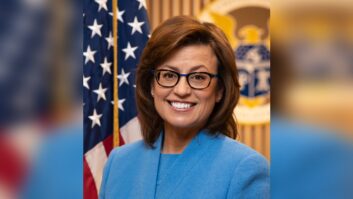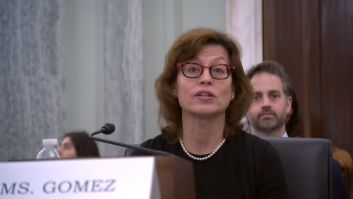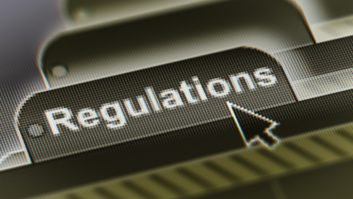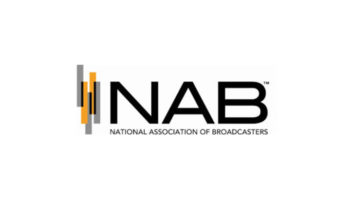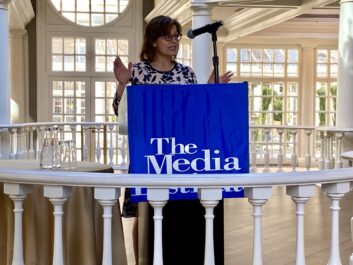
FCC Commissioner Anna Gomez says it’s important that the FCC adapt to how consumers access news and develop initiatives to prevent the spread of misinformation. And she urged people working in media to help consumers develop discernment skills.
Gomez, five months into her term as the newest member of the commission, spoke at The Media Institute’s 2024 Communications Forum in Washington on Feb. 20.
“When I was young, I got my news by listening to the radio and watching TV,” she said according to text provided by the commission.
She framed MTV’s Kurt Loder as the Walter Cronkite to her millennial generation. Younger people are consuming more news and media through digital platforms such as Instagram reels and TikToks, seeking to be both entertained and informed.
Regardless of platform, Gomez said, addressing misinformation in news is a serious issue. “I know I’m not breaking news when I say there is a lack of trust in journalism today.”
Gomez cited changes in technology, including artificial intelligence and its products such as deepfakes and voice cloning, as widening the reach of misinformation, including a recent example that impersonated President Biden as an attempt to influence a federal election primary.
“Misinformation in this form poses a threat to our democracy,” she said. She also mentioned fears spread on social media about a 1-in-1,000-year atmospheric river event headed for California, a story with public safety implications that had no meteorological basis.
Gomez emphasized that the commission is not to regulate content. “Let me say this again to make sure I am crystal clear: I have zero interest in regulating what goes on in a newsroom.” But she called for efforts to meet consumers where they are getting their news and work on education. “I think giving consumers tools for understanding and consuming media is both powerful and necessary.”
Gomez outlined three initiatives to help people discern whether content they are consuming is reliable.
First, she mentioned watermarks to label AI-altered content, citing Adobe as a leader in this area. She also highlighted the Content Authenticity Initiative, aimed at giving consumers a traceable history of content alterations. Third, she discussed the importance of misinformation education.
“In the same way that taking an art appreciation class can help people better engage with the art they consume, I believe that media literacy education efforts will help people better engage with the online media that they consume.”
Gomez highlighted a course that MediaWise and Noticias Telemundo developed in partnership with Poynter, a nonprofit media institute and newsroom, to educate consumers about radio misinformation and media biases. Their resources are also available to Spanish speakers and through a course on WhatsApp.
“At the end of the day, real discernment skills should transcend the type of media being consumed,” Gomez said.
[Read the text of her remarks.]





